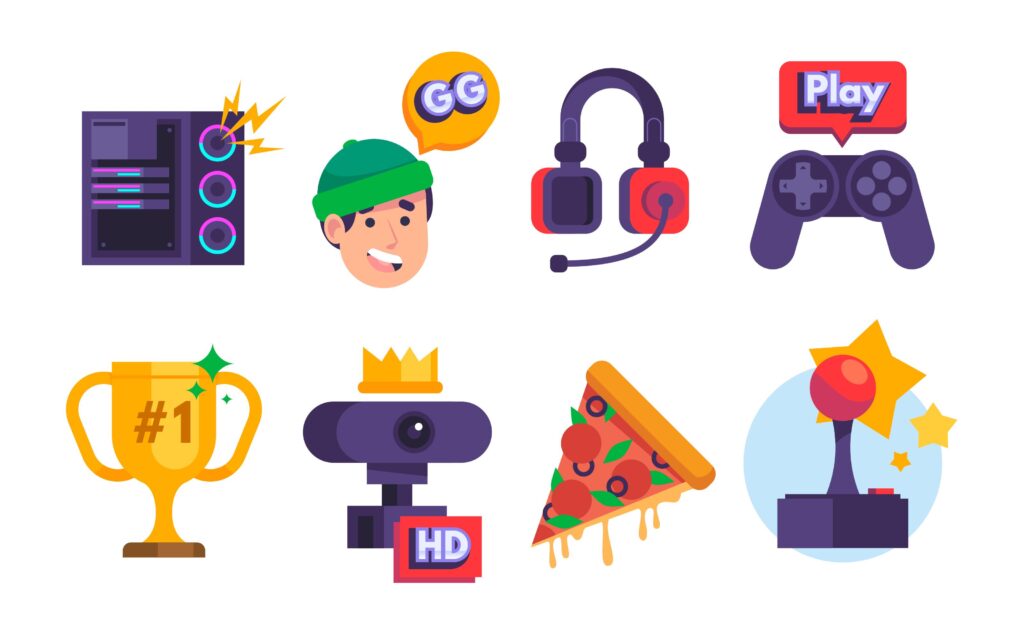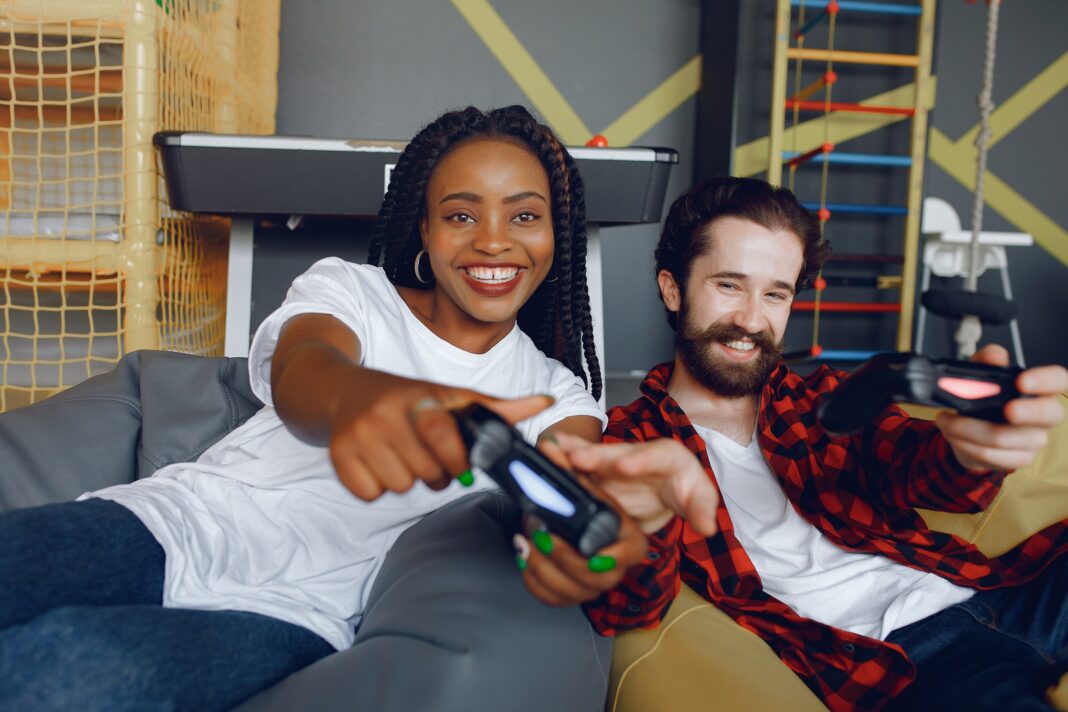Video games have evolved far beyond simple entertainment—they are now recognized as powerful tools for mental well-being. While critics often focus on potential negative effects, a growing body of research reveals that gaming can enhance cognitive function, reduce stress, foster social connections, and even serve as a therapeutic aid. This comprehensive guide explores the science behind gaming’s mental health benefits, debunks common misconceptions, and provides actionable insights for maximizing these advantages.

1. Stress Reduction and Emotional Regulation Through Gaming
The Science Behind Gaming and Stress Relief
Gaming provides an effective escape from daily stressors by immersing players in engaging, controlled environments. Unlike real-life challenges, video games offer structured problems with clear solutions, which can be deeply satisfying.
- Neurological Benefits:
- Gaming triggers dopamine release, a neurotransmitter associated with pleasure and motivation.
- The “flow state”—a mental state of complete absorption—reduces cortisol (the stress hormone) levels.
- Repetitive, rhythmic games (e.g., Tetris, Minecraft) have been shown to lower anxiety by providing predictable, soothing patterns.
- Psychological Mechanisms:
- Distraction Theory: Games divert attention away from stressors, allowing mental recovery.
- Mastery and Control: Overcoming in-game challenges reinforces a sense of competence and self-efficacy.
Best Types of Games for Stress Relief
Not all games are equally effective for relaxation. The most beneficial include:
- Open-World Exploration Games (e.g., The Legend of Zelda: Breath of the Wild, Skyrim)
- Allow players to explore at their own pace, with no pressure to complete objectives.
- Natural landscapes in games have been found to induce calmness, similar to real-world nature exposure.
- Casual and Simulation Games (e.g., Stardew Valley, Animal Crossing: New Horizons)
- Low-stakes gameplay with rewarding, repetitive tasks (farming, decorating) can be meditative.
- The lack of failure states reduces performance anxiety.
- Puzzle and Logic Games (e.g., Portal, Monument Valley, Lumines)
- Require focused attention, which helps quiet racing thoughts.
- Solving puzzles provides a sense of accomplishment without frustration.
- Creative Sandbox Games (e.g., Minecraft in Creative Mode, Dreams)
- Allow for unstructured play, fostering relaxation through creativity.
Case Study: Gaming as a Coping Mechanism for Anxiety
A 2022 study published in JMIR Mental Health found that 70% of participants with generalized anxiety disorder reported reduced symptoms after playing relaxing games for 30 minutes daily over a month. Games like Animal Crossing were particularly effective due to their low-pressure, social, and goal-oriented nature.
2. Cognitive Enhancements: How Gaming Sharpens the Mind
Improved Problem-Solving and Strategic Thinking
Video games, especially strategy and puzzle genres, enhance executive functions such as:
- Working Memory: Juggling multiple objectives in real-time strategy games (e.g., StarCraft II) improves memory retention.
- Critical Thinking: Games like The Witness and Return of the Obra Dinn require deep analytical reasoning.
- Adaptive Learning: Players must constantly adjust strategies based on new information (e.g., Dark Souls combat mechanics).
Enhanced Memory and Information Processing
- Spatial Memory: 3D platformers (e.g., Super Mario Odyssey) improve navigation skills.
- Visual Processing: Fast-paced shooters (e.g., Apex Legends) enhance peripheral awareness and reaction times.
- Pattern Recognition: Rhythm games (e.g., Beat Saber) strengthen auditory and visual processing.
Long-Term Cognitive Benefits
A 2021 meta-analysis in Nature Human Behaviour found that regular gamers exhibit:
- 12% faster decision-making speed than non-gamers.
- Better multitasking abilities, particularly in high-pressure scenarios.
- Improved hand-eye coordination, benefiting real-world tasks like driving.
3. Social Connectivity: Combating Loneliness Through Gaming
The Rise of Online Gaming Communities
Multiplayer games provide structured social interactions, which can be especially valuable for:
- Introverts who find in-game communication less intimidating.
- Individuals with Social Anxiety, as interactions are controlled and optional.
- People in Isolated Areas, offering a way to connect globally.
Examples of Socially Beneficial Games
- MMORPGs (e.g., Final Fantasy XIV, World of Warcraft)
- Guilds and cooperative raids foster teamwork and long-term friendships.
- Co-Op Games (e.g., It Takes Two, Overcooked)
- Strengthen real-life relationships through shared gameplay.
- Virtual Worlds (e.g., VRChat, Second Life)
- Provide spaces for self-expression and community building.
Mental Health Support in Gaming Communities
- Discord groups dedicated to mental health discussions.
- In-game charities (e.g., Games Done Quick marathons raising funds for mental health nonprofits).
4. Emotional Resilience and Psychological Growth
Learning Perseverance Through Failure
Games like Dark Souls and Celeste teach:
- Grit: Repeated failure normalizes setbacks, reducing fear of mistakes.
- Delayed Gratification: Long-term rewards (e.g., leveling up) reinforce patience.
Emotional Catharsis in Narrative Games
Story-driven experiences (e.g., The Last of Us Part II, Life is Strange) allow players to:
- Process grief, trauma, and complex emotions in a safe space.
- Develop empathy through character-driven storytelling.
5. Gaming in Professional Therapy and Rehabilitation
Therapeutic Applications
- VR Exposure Therapy: Used for PTSD treatment (e.g., Bravemind program for veterans).
- ADHD Management: Gamified focus apps (e.g., EndeavorRx, FDA-approved for ADHD treatment).
Neurodivergent Support
- Autism Spectrum: Minecraft is used in schools to teach social skills.
- Dyslexia: Text-heavy RPGs improve reading comprehension through engagement.
6. Responsible Gaming: Maximizing Benefits While Minimizing Risks
Healthy Habits
- Scheduled Playtime: Use apps like RescueTime to monitor usage.
- Ergonomic Setups: Prevent physical strain with proper seating and screen distance.
Recognizing Problematic Use
Signs gaming may be harmful:
- Neglecting responsibilities.
- Using games to escape reality excessively.
FAQ: Addressing Common Concerns
Q: Can gaming replace therapy?
A: While beneficial, it should complement—not replace—professional treatment for severe conditions.
Q: Are violent games harmful?
A: Current research shows no definitive link between virtual violence and real-world aggression in stable individuals. Moderation is key.
Conclusion: A Balanced Perspective on Gaming and Mental Health
When approached mindfully, gaming is a multifaceted tool for enhancing well-being. By selecting appropriate games and maintaining balance, players can harness cognitive, emotional, and social benefits while minimizing risks.

